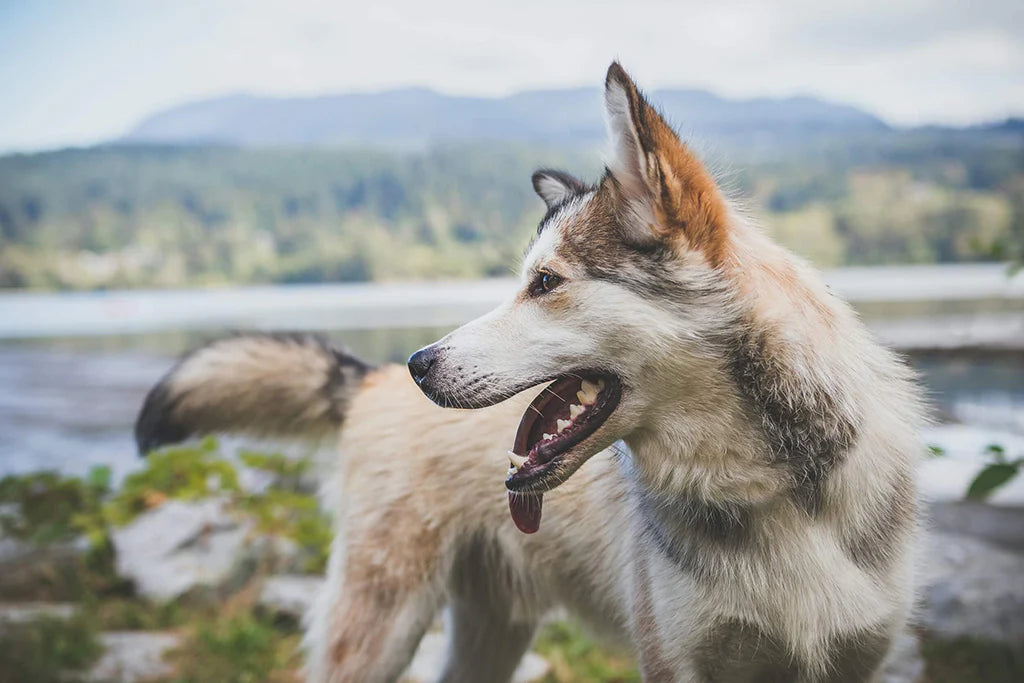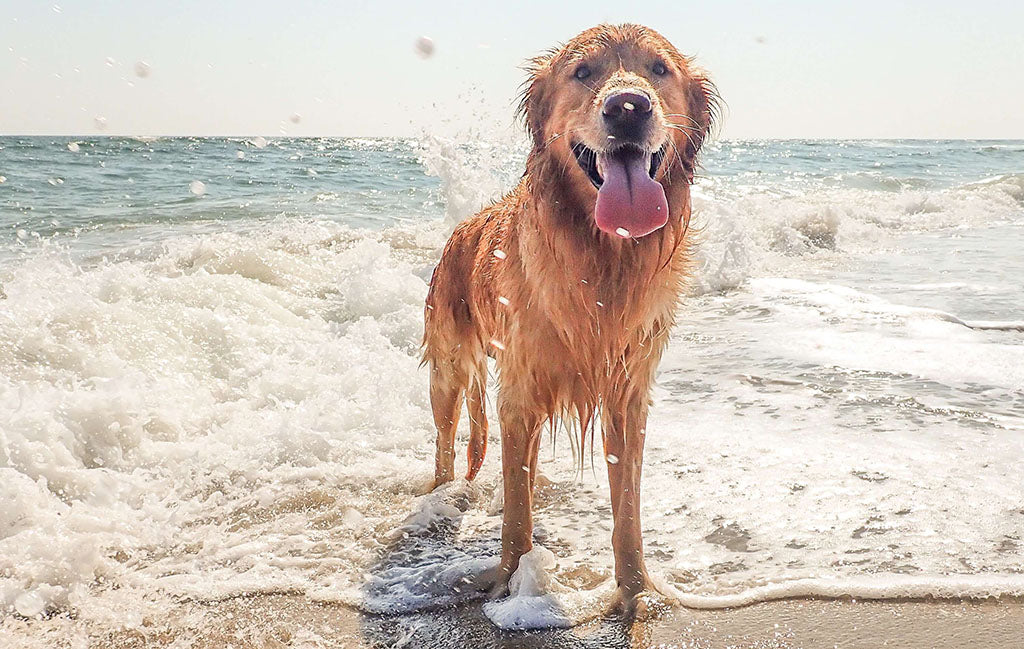Why Do Dogs Pant? Everything You Need To Know!
Summary: In this blog, learn why dogs pant, when it's normal, and when it might indicate an issue that requires attention.
Panting is a Normal Behaviour
Panting is a common behaviour in dogs. You may notice your pup panting after exercise, during playtime, or on a hot day. However, if your dog is panting excessively and exhibiting additional concerning symptoms, it could be a sign of fear, stress, or illness.
Why Do Dogs Pant?
Typically, dogs pant to cool themselves down when they're too hot, either from physical activity or warm weather. However, there are other reasons why dogs pant, and it's important for dog owners to distinguish between normal and abnormal panting.

Common Reasons Why Dogs Pant
- Cooling Down: Dogs pant to regulate their body temperature since they don't sweat like humans. Panting allows them to exchange hot air from their lungs with cooler external air, helping to cool their body.
- Feeling Scared or Anxious: Panting can be a sign of fear, anxiety, or stress in dogs. This type of panting, known as behavioural panting, often occurs in stressful situations such as vet visits or exposure to loud noises.
- Brachycephalic Airway Syndrome: Brachycephalic dog breeds, characterised by short snouts and flat faces, are prone to panting due to the narrowing of their upper respiratory tract. This condition, known as Brachycephalic Airway Syndrome (BAS), can cause breathing difficulties and excessive panting.
Excessive Panting and When to Seek Help
If you notice your dog panting more than usual, especially when they're not hot or in a relaxed state, it could be a sign of an underlying issue. Excessive, fast, shallow, or laboured panting should prompt you to seek veterinary assistance. Some possible causes of excessive panting include:
- Allergies: Dogs can experience allergies that may affect their breathing. If your dog is panting along with other symptoms like vomiting, diarrhea, or lethargy, a vet visit is recommended.
- Obesity: Overweight dogs often pant excessively due to the extra strain on their bodies and reduced oxygen intake.
- Heatstroke: Dogs can suffer from heatstroke, particularly in hot summer months. Excessive panting, along with other symptoms like high body temperature and glazed eyes, may indicate heatstroke. Move your dog to a cool shaded area and seek veterinary attention.
- Pain: Dogs may pant more than usual when they're in pain. If your dog exhibits unusual panting patterns, especially at night, it's important to consult with a vet to determine the cause of their discomfort.
- Heart Problems: Excessive and sudden panting could be a sign of heart-related issues. Dogs with heart conditions may struggle to breathe, leading to rapid or laboured breathing. Lethargy and weakness may accompany panting in such cases.

Conclusion
Panting is a natural behaviour for dogs, but it's essential to differentiate between normal panting and excessive panting that may indicate an underlying problem. Understanding why dogs pant can help you recognise when panting is a cause for concern. If you're unsure or if your dog's panting is accompanied by worrisome symptoms, consult with your veterinarian for proper evaluation and guidance.




Leave a comment
This site is protected by hCaptcha and the hCaptcha Privacy Policy and Terms of Service apply.